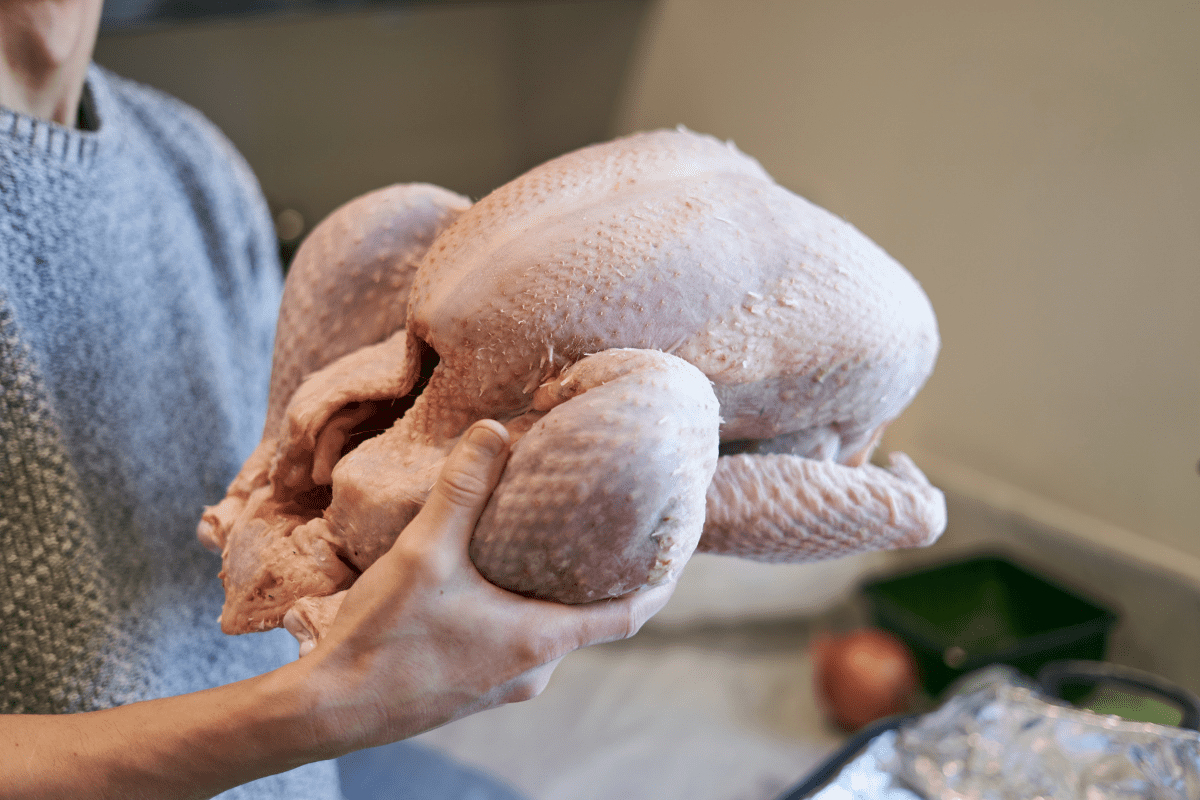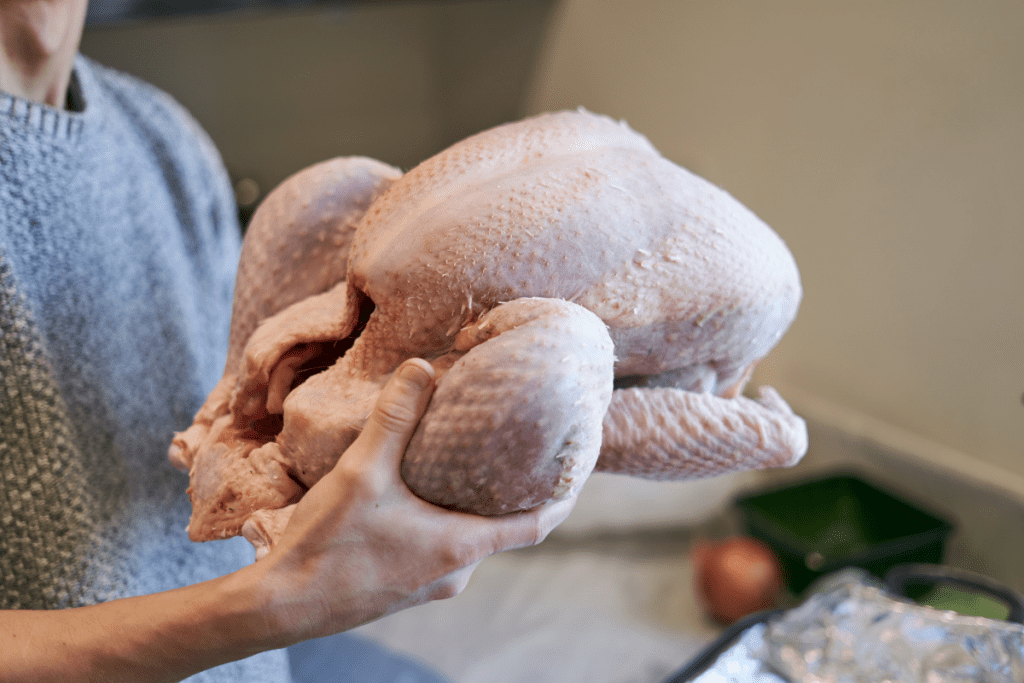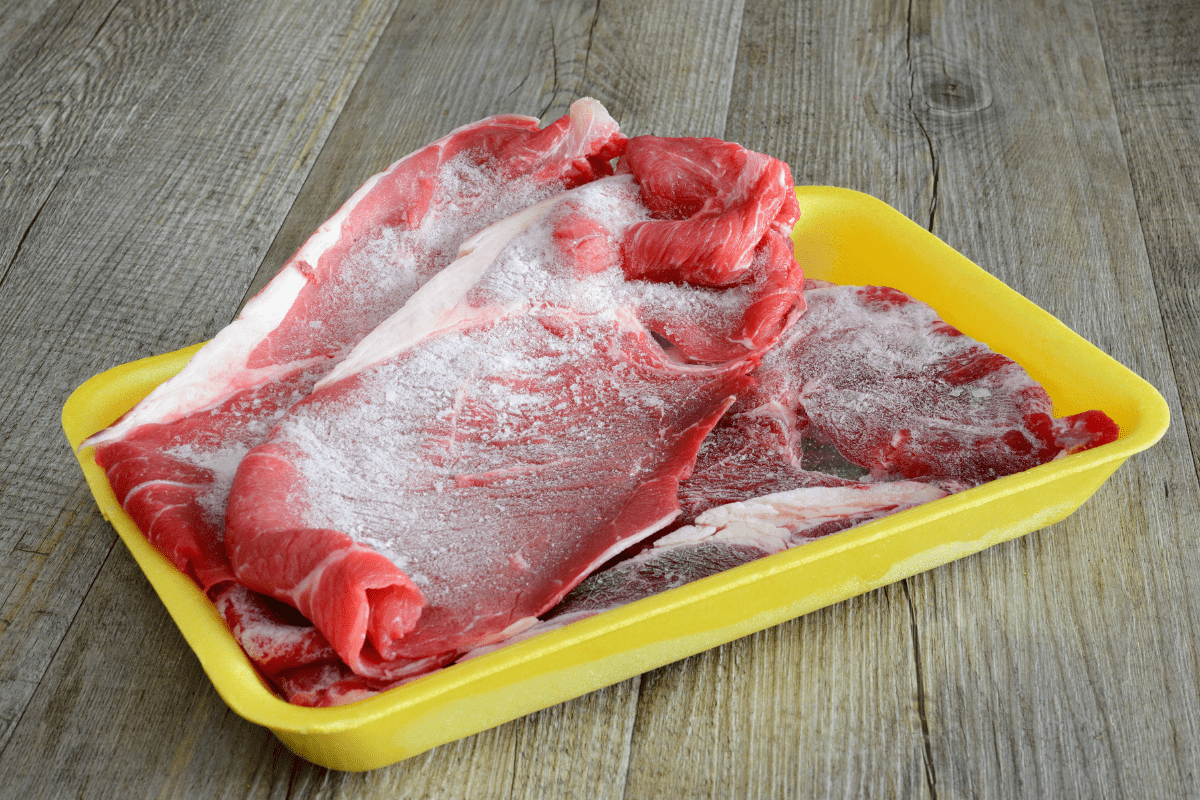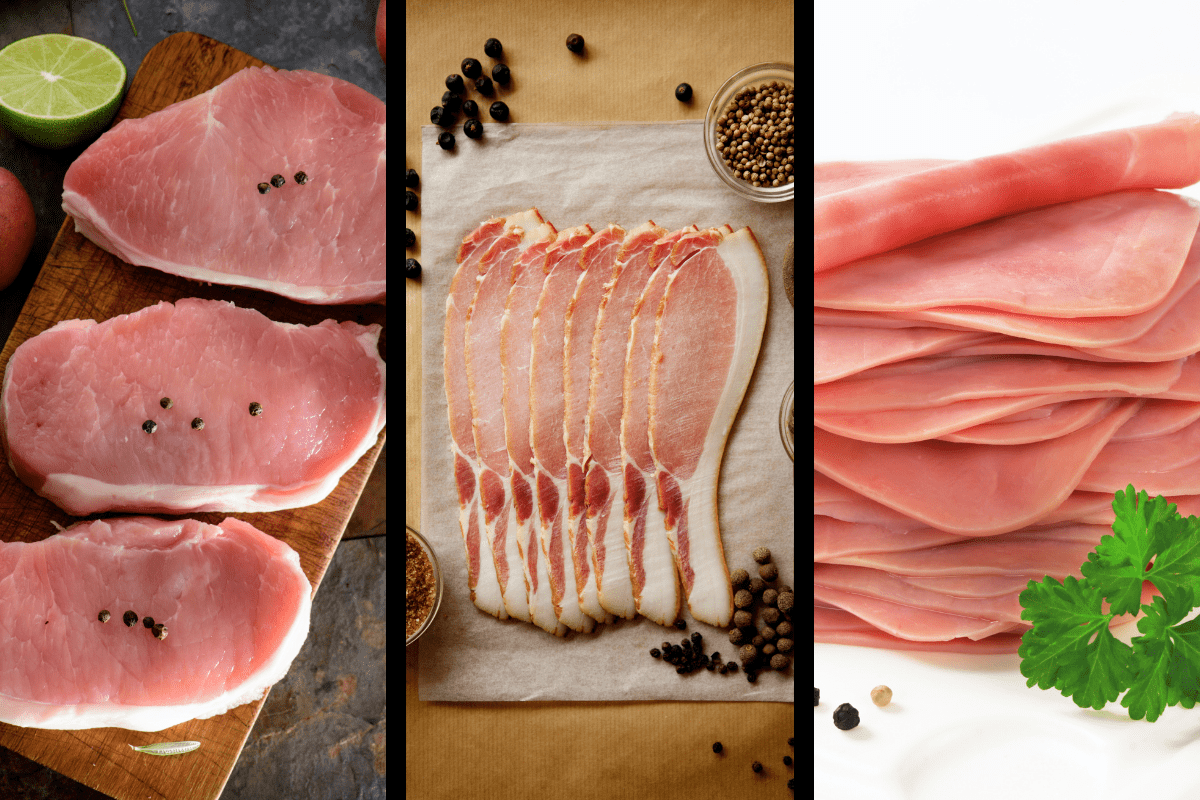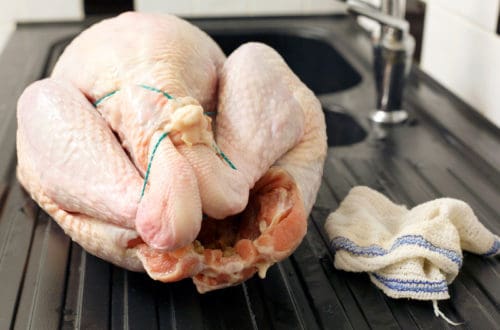Thanksgiving and Christmas are the most popular times that fresh turkeys are cooked for a celebration meal. With so many birds sold over the festive period, it is inevitable that some bad ones may slip through the supply chain.
In this article we will explain how you can tell whether your turkey is likely to be safe to go ahead and cook, or if you may want to return the bird to the supplier for a refund.
So how can you tell if a turkey is safe to eat? A whole fresh turkey that is ready to cook should be clean and healthy looking, with very little odor. The skin should be free from bruises or dried out patches, and slightly moist. Any odor to the meat will be very mild and unoffensive. If the turkey has a sticky feel to the skin, and/or a strong and offensive smell, then it should not be eaten.
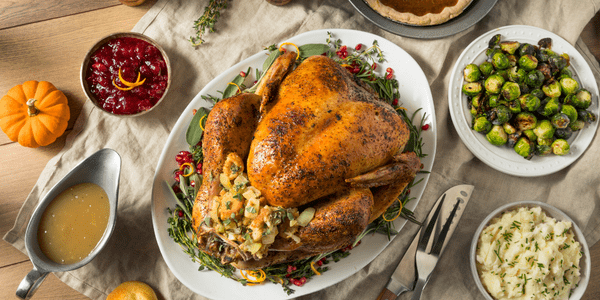
During the holiday period, millions of turkeys are prepared to supply us with our favorite meal. This increase in demand can mean that there may be a slight decrease in the quality and care taken over the birds selected for sale, however this does not necessarily mean that the birds are not fit to eat.
There is a big difference between what is more of an appearance issue, over what is a safety issue, as far as food safety is concerned.
We will now look further at some of the signs that you may see on your turkey, and determine if these are purely visual issues and the bird is perfectly safe to eat, or if there may be a food safety concern that would lead you to returning the bird for a refund.
Dried Skin Patches or Blemishes
Depending on where you purchase your turkey, will have a bearing on whether there are skin issues.
Many grocery stores sell their birds wrapped in a sealed plastic that prevents the air getting to the meat. This helps to keep the bird moist and fresh, and you are unlikely to see dried skin patches when you open it up.
However, if you purchase from a meat market where the birds are in a meat cabinet on open display, you may see some slight drying to the skin, or a mottled look. This is purely a visual issue, and is caused from the skin being exposed to the air. It will not affect the quality of the bird in any way and should not prevent you from purchasing the turkey. However, if it is close to the holiday date, you may be able to ask for a price reduction as the butcher will be wanting to sell his stock before the end of the holiday period and will be happy to move the ‘less than perfect’ looking stock.
Verdict: Safe To Eat
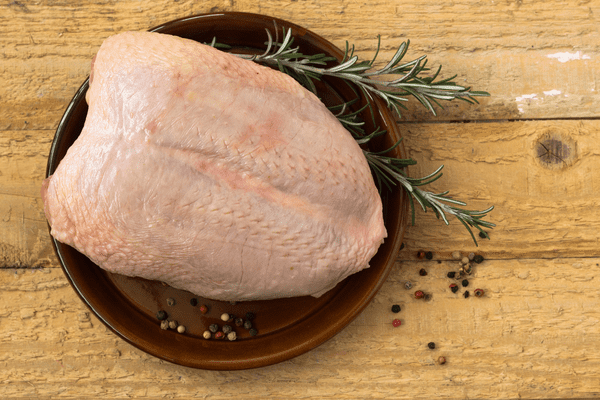
Bruised Skin or Joints
When the turkeys are being transported to slaughter, they are often confined in large groups. This can lead to the birds pecking each other, or sometimes getting hurt legs or wings.
Once slaughtered, the prepared birds will go through a grading process where they will be checked for bruising or broken joints. Any birds that are not in perfect condition will be removed to be used for portions, sausage or ground turkey etc. However, this is not a foolproof system and less than perfect birds do make their way through.
As mentioned earlier, many birds are sold wrapped in plastic and so it is impossible to see these bruises or broken joints until the bird is opened. Birds that are sold unwrapped will have been rejected by any conscientious butcher!
If you open your turkey and see bruising to the skin, or around the wing/leg joints, although frustrating, it will once again only be a visual issue, rather than a food safety concern.
If you have opened it early enough, you may have time to return it to the seller for an exchange, however if you have opened it on the day you want to cook it, you can always take a photo of the damaged area and possibly get a partial refund after the hliday.
You will be perfectly safe to go ahead and cook the turkey, and depending on the location and severity of the bruising, may just need to carve around the affected area. The rest of the meat will look and taste perfectly fine.
Verdict: Safe To Eat
Stray Feathers
You may find when you open the turkey that there are still some feather in tact on the bird. Although this shouldn’t happen, with the volume of birds being processed, corners are cut and birds slip through the net that are not as perfect as they should be.
Although annoying, the remaining feathers can just be pulled out of the bird prior to cooking, or singed/burnt off using a candle or lighter. Gripping any larger feathers with a paper towel will help you to grip them for removal.
Verdict: Safe To Eat
Sticky or Slimy Turkey Skin
If when you open your turkey you feel that the skin is sticky or slimy, then there is a problem. This is not to be confused with the skin feeling ‘moist’!
The skin of the turkey, especially if it has been wrapped in plastic, will feel moist/wet, but it will be a clean feel that doesn’t leave any sticky or slimy residue on your hands when handling the bird.
If you find that your hands feel sticky, or have a creamy residue left on your hands after touching the meat, then it is likely that your bird has began to spoil.
Some people may be tempted to ‘wash’ the bird and cook it anyway, however this is not a recommended course of action.
Although it will be extremely frustrating to have to discard the turkey on the morning it is due to be cooked, that sticky/slimy residue on the surface of the bird, is likely to be food borne bacteria that may be harmful if consumed.
You should wrap the turkey well and if you have space, drop it into the freezer so that you can return it to the place you bought it for a refund after the holiday. You should also ask for a goodwill gesture from the retailer as compensation for ruined dinner plans!
Verdict: Do Not Eat!
Strong Odor to Turkey Meat
When you open your turkey in preparation for cooking, you may detect an odor to the bird. This is not always a reason to discard the meat.
If the bird has been wrapped prior to using, there will be a slight odor due to being confined in its own natural juices. However, this odor will be slight and not offensive to the nose, and the bird will be fine to cook.
However, if upon opening you are met with a ‘horrible’ smell, or a really strong off-putting odor, then there is an issue.

Firstly, check whether or not there are giblets present in the bird. This is usually a small bag containing the turkey neck, liver and heart of the bird. Sometimes, it can be the giblets that have gone bad and the turkey is actually fine. If the giblets have spoiled, then discard them and check for any bad odors from the actual turkey itself.
If the bird itself also has a strong smell, then there is an issue. A strong and/or offensive smell, is a sure sign that the turkey has gone beyond it’s best, and has started to spoil. Do not cook the bird if this is the case, return it to the seller for a refund as soon as possible.
Verdict: Do No Eat!
Horrible Smell When Cooking Turkey!
If you have been unsure about whether the turkey is safe to eat or not, and have gone ahead and started to cook it anyway, it will soon become clear.
A fresh turkey cooking will produce a delicious and mouth watering aroma that will have you drooling at the thought of the meal to come.
However, if the smell of the turkey cooking is filling the house with an offensive or off-putting smell, then that is a sure sign that the meat has spoiled and you should change your dinner plans immediately!
Verdict: Do Not Eat!
Check that you have removed the plastic bag of giblets from the birds neck or cavity prior to cooking. It has been known that the plastic bag has been left in during cooking and it is the smell of the plastic that is causing the offensive smell and not the actual turkey!
Here is a video on how to remove the giblets from a store bought Turkey
Although it is going to be extremely frustrating to have to change your dinner plans, it is not worth taking the risk and cooking the turkey if it is showing signs of spoilage. Trust me, your guests will not really care if you change the menu and have a really nice holiday. However, they will always remember the day for the wrong reasons if you end up making them all ill due to cooking a bad turkey!
